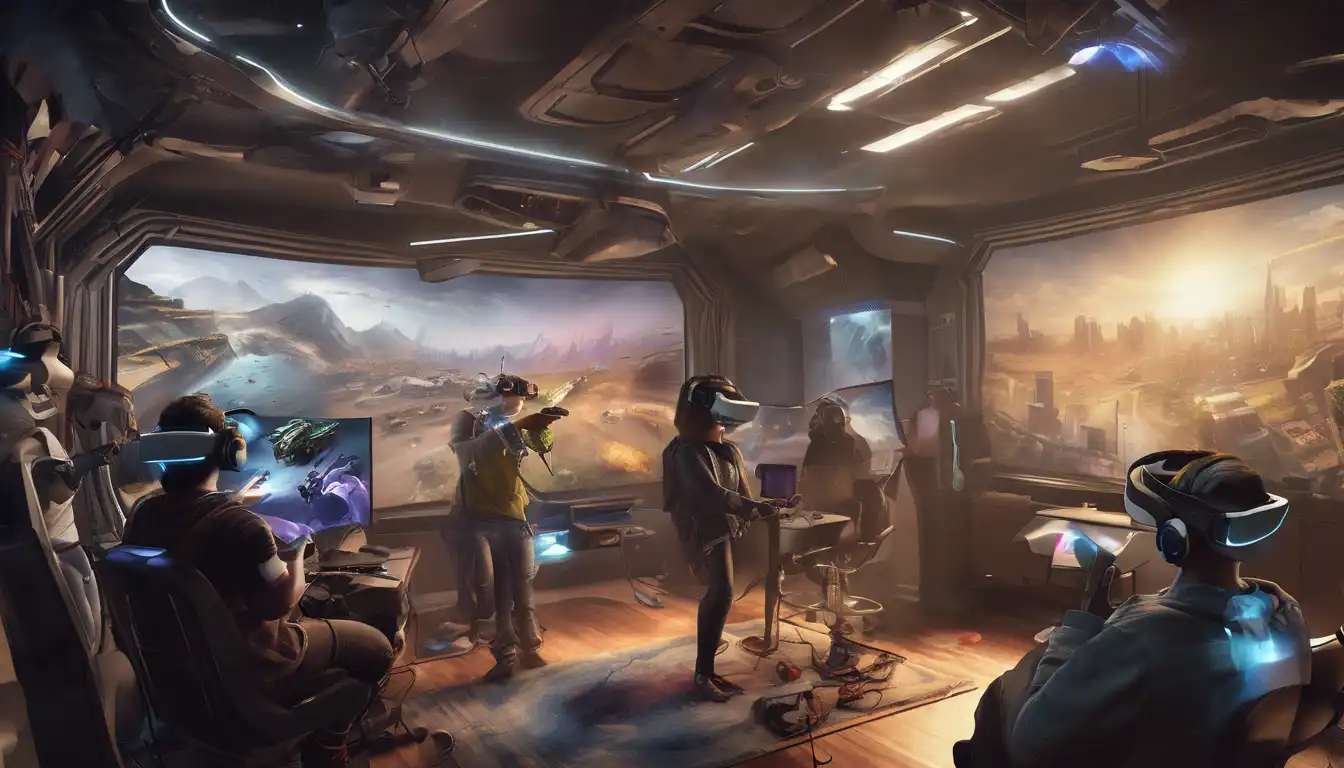The Revolutionary Impact of Virtual Reality on Gaming
Virtual Reality (VR) has emerged as a groundbreaking technology that is reshaping the gaming industry in unprecedented ways. By offering immersive experiences that were once the stuff of science fiction, VR is setting new standards for how games are played and experienced. This article explores the transformative effects of VR on gaming, from enhanced player engagement to the creation of entirely new genres.
Immersive Gaming Experiences
One of the most significant contributions of VR to the gaming industry is the level of immersion it offers. Players are no longer mere spectators but active participants in virtual worlds. This immersion is achieved through advanced VR headsets and motion-tracking technologies, which simulate physical presence in a digital environment. Games like Half-Life: Alyx have demonstrated the potential of VR to deliver deeply engaging narratives and gameplay mechanics that are impossible in traditional gaming formats.
New Genres and Gameplay Mechanics
VR has also paved the way for the creation of new gaming genres and the reinvention of existing ones. From puzzle games that require physical manipulation of objects to horror games that play on the player's sense of presence, VR is expanding the boundaries of game design. Developers are continually experimenting with VR's capabilities, leading to innovative gameplay mechanics that challenge conventional gaming paradigms.
Enhanced Social Interaction
Another area where VR is making waves is in social gaming. Platforms like VRChat allow players to interact in virtual spaces as avatars, offering a new dimension to online multiplayer experiences. This has not only enhanced the way players connect with each other but also opened up new possibilities for virtual events and gatherings within games.
The Future of VR Gaming
As VR technology continues to evolve, its impact on the gaming industry is expected to grow even further. With advancements in hardware, such as lighter and more affordable headsets, and software, including more sophisticated AI and graphics, the future of VR gaming looks bright. The potential for VR to integrate with other technologies, such as augmented reality (AR) and artificial intelligence (AI), promises to unlock even more innovative gaming experiences.
In conclusion, VR is not just transforming the gaming industry; it's redefining what games can be. By offering unparalleled immersion, fostering new genres, and enhancing social interaction, VR is at the forefront of the next major evolution in gaming. As developers and players alike continue to explore its possibilities, the line between the virtual and the real will become increasingly blurred, heralding a new era of interactive entertainment.
